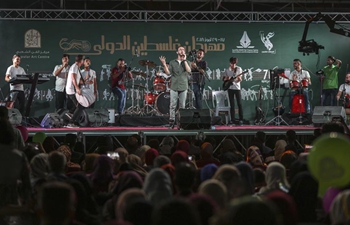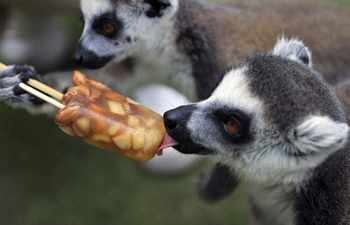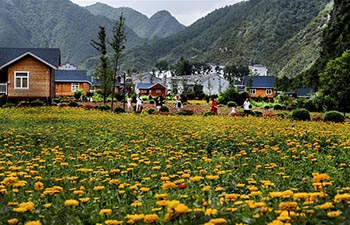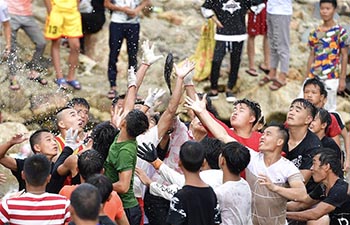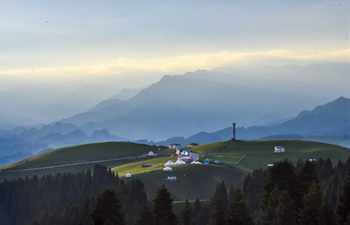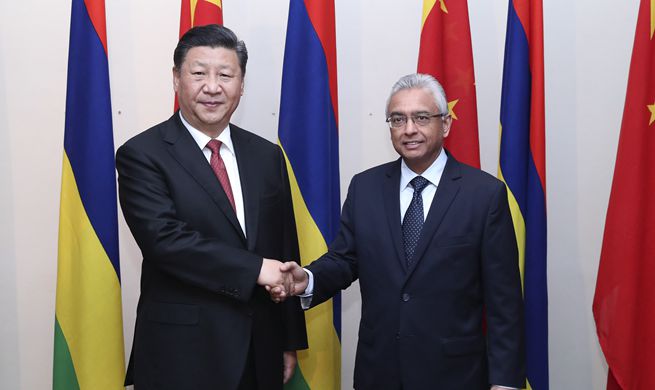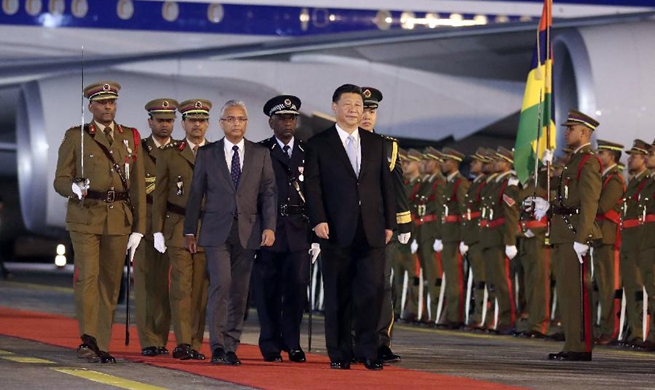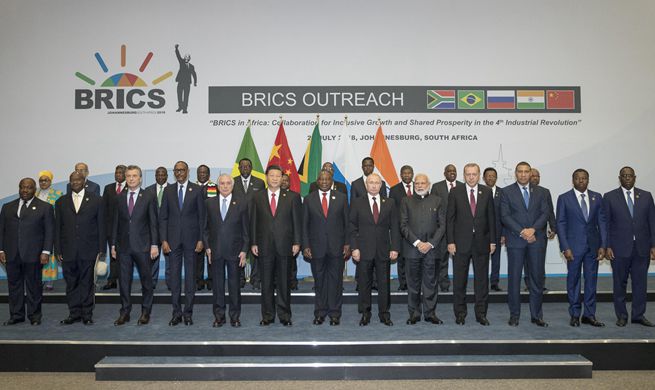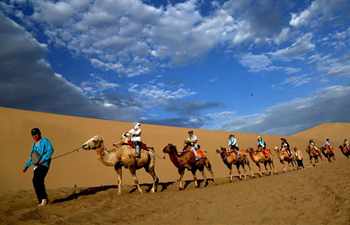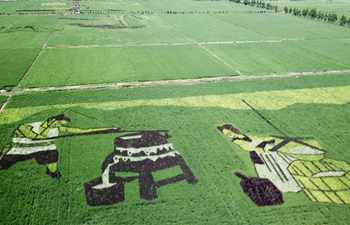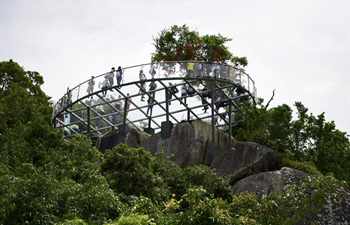by Mohamed al-Azaki
SANAA, July 30 (Xinhua) -- Known for its purity and therapeutic benefits, Yemen's honey has been hailed as among the best in the world.
However, the country's more than three years of civil war has badly paralyzed its traditional honey business.
In a farm in the western part of the capital Sanaa, Abdullah Nashir, a well-seasoned beekeeper, is struggling to expand the scale of his beehives or sell his products.
"The spread of security checkpoints between cities and turning mountainous forests into military areas have badly damaged my honey farming," said Nashir.
"I need to move my beehives at least twice each year, to mountainous forests in the summer and to the valleys in the winter, in order to produce two types of honey products," he explained.
"But the war has strictly limited our movement, production and that badly damaged our business," the 50-year-old man lamented.
Nashir is also a professor at the Agricultural Faculty in Sanaa University and chief of Cooperative League of Yemeni Beekeepers, a non-governmental syndicate covering 100,000 Yemeni beekeepers.
"Before war, the beekeepers across the country used to produce at least 2,650 tons of honey every year, including 900 tons exported abroad," Nashir said, citing an official report issued by the Yemeni Ministry of Trade and Industry in late 2014.
The report was the most recent official report on the honey industry in Yemen, which was issued by the ministry three months before the war erupted in March, 2015.
The war pitted the exiled Yemeni internationally-recognized government forces, backed by the Saudi-led Arab coalition, against Iran-allied Houthi rebels.
The devastating war has so far killed more than 10,000 Yemenis, mostly civilians, and displaced around three million others, according to the United Nations humanitarian agencies.
The United Nations has been exerting peace efforts for a political settlement between the warring parties in Yemen.
Nashir said the journeys of beekeepers in search of areas abundant in trees and flowers to feed their bees have become fraught with danger because of random shelling and airstrikes.
"Many families adopt farming and producing honey as a main source of income, particularly in the southeastern provinces of Shabwa and Hadramout. The war, however, has caused big losses in this business," the Yemeni professor noted.
"Some beekeepers resort to feeding their bees with sugar mixed with water inside the city rather than risking their life in the mountains and valleys as the war is raging on," he pointed out.
Still, many beekeepers take their journeys to produce Sidr honey, one of the world's best types of honey, from jujube trees that bloom in the winter.
"Plant diversity in Yemen is the primary source of determining the type and quality of honey," Nashir said, while he was showing his farm, beehives and honey.
In a honey shop on a main street in downtown Sanaa, the seller Tareq al-Swari told Xinhua that a kilo of Sidr honey of the best quality can be sold at as high as 100 U.S. dollars.
Al-Swari said people come here to buy honey mixed with herbs for therapeutic values.
"Many men here resort to honey, a tablespoon of which gives them energy and makes them able to have sex with their wives," he explained.
However, the shop owner said the honey sales have decreased since the war broke out as the overseas market has been cut off.
Al-Swari said his shop exported at least three tons of honey annually to Saudi Arabia, the United Arab Emirates, Qatar, Russia and Malaysia before the war.
"I now sell at lower prices to local buyers to keep the business going on," he complained.
"Honey is a symbol of peace in Yemen's historical tribal traditions ... I'm longing for peace to come back to heal my country and unite the people again," the Yemeni honey dealer hoped.




